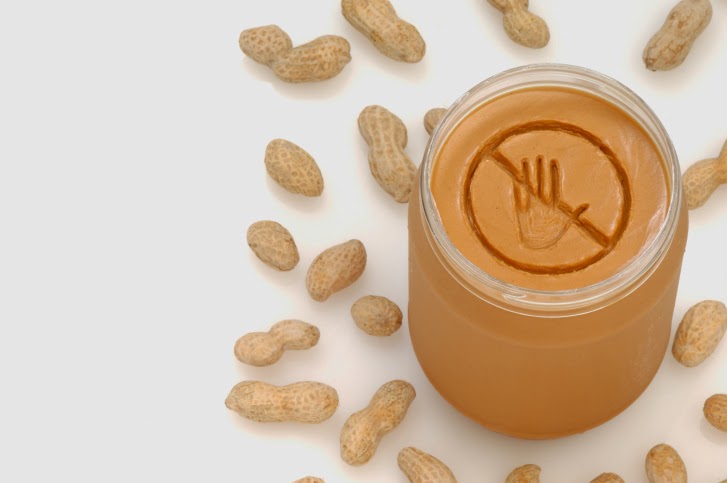Avoiding the Dangers of Hidden Allergens
by Dr. Victor Marchione
I remember sitting in my school cafeteria as a child when Stephanie, a girl one year older than me, turned red and started choking. In a matter of moments, she was on the ground and convulsing. There was disarray all around her. Someone yelled, “Get her Pen!” By that time, a teacher had arrived, and they’d gotten her EpiPen from her backpack and administered a shot. Right then, the paramedics arrived and rushed her away.
That was before there were no peanuts in schools and every package featured a peanut warning. Stephanie was allergic to peanuts; and that day, without knowing she’d come into contact with some, she almost died.
[do_widget id=text-16]
These days, there are a number of measures in place to safeguard people with nut allergies. You’ve seen the warning labels like “may contain traces of peanuts or tree nuts.” Foods containing nuts have been banned from schools, offices, and other public settings.
But the truth is that you can never be 100% protected from severe allergens. Manufacturers make errors all the time, and even if you think you’re safe, you always run the risk of biting into a product that’s been packaged incorrectly or has come into contact with a potentially deadly allergen. And this might happen more than you think.
 The leading cause for food recalls in the United States isn’t for bacteria outbreaks like listeria or salmonella. Instead, it’s for undeclared allergens that can have serious consequences if consumed by the wrong people. Milk, tree nuts, peanuts, soy, fish, shellfish, and wheat are the major recalls that pose the greatest danger. And although there are no official numbers to track severe reactions or deaths, these foods have been identified by Food and Drug Administration (FDA) researchers as the most dangerous. And it’s milk, not peanuts, which is the most common problem allergen.
The leading cause for food recalls in the United States isn’t for bacteria outbreaks like listeria or salmonella. Instead, it’s for undeclared allergens that can have serious consequences if consumed by the wrong people. Milk, tree nuts, peanuts, soy, fish, shellfish, and wheat are the major recalls that pose the greatest danger. And although there are no official numbers to track severe reactions or deaths, these foods have been identified by Food and Drug Administration (FDA) researchers as the most dangerous. And it’s milk, not peanuts, which is the most common problem allergen.
So how do you protect yourself from these hidden allergens? It’s very difficult, so the first defense mechanism is awareness. Understand that manufacturers make mistakes and sometimes the wrong product ends up in the wrong package and in the wrong hands. When it happens with a major company, the product is often publicly recalled, but it’s harder to know with smaller companies.
Follow the news and visit the web site of the brands you buy for the most accurate information. You can also visit www.foodsafety.gov for accurate information on current recalls.
It’s also important to carefully read labels and ingredient lists, and take a good look at a product before you bite into it. If it’s the wrong product inside, or even if you notice a subtle difference in packaging, be extra cautious, as it could trigger a reaction. Take a moment and make sure you’ve got what you’re supposed to have in your hands before it goes in your mouth.
Lastly, make sure your EpiPen is close by and readily available. Carrying it in your purse, pocket, or backpack is essential to buying enough time to get to the emergency room. If you’re alone, be sure you’ve got a medic alert bracelet or some form of identification so people nearby are aware there is an EpiPen with you.
Sources for Today’s Article:
- Allecia, J., “Hidden Danger: Undeclared Allergens Lurk in Many Foods,” NBC News web site, June 6, 2014; http://www.nbcnews.com/health/allergies/hidden-danger-undeclared-allergens-lurk-many-foods-n124626.
- “Undeclared Allergens Top Reason for Second Quarter Recalls,” Food Safety News web site, August 21, 2013; http://www.foodsafetynews.com/2013/08/undeclared-allergens-top-reason-for-second-quarter-recalls/#.U5do2pRdVD0, last accessed June 10, 2014.
- Gendel, S., et al., “Learning from FDA Food Allergen Recalls And Reportable Foods,” Food Safety Magazine web site, April/May 2014; http://www.foodsafetymagazine.com/magazine-archive1/aprilmay-2014/learning-from-fda-food-allergen-recalls-and-reportable-foods/, last accessed June 10, 2014.
This article “Avoiding the Dangers of Hidden Allergens” was originally published on DoctorsHealthPress, visit their site to access their vast database of articles and the latest information in natural health.
Victor Marchione, MD received his Bachelor of Science Degree in 1973 and his Medical Degree from the University of Messina in 1981. He has been licensed and practicing medicine in New York and New Jersey for over 20 years. Dr. Marchione is a respected leader in the field of smoking cessation and pulmonary medicine. He has been featured on ABC News and World Report, CBS Evening News and the NBC Today Show and is the editor of the popular The Food Doctor newsletter. Dr. Marchione has also served as Principal Investigator in at least a dozen clinical research projects relating to serious ailments such as bronchitis, pneumonia, asthma, and chronic obstructive pulmonary disease (COPD).




